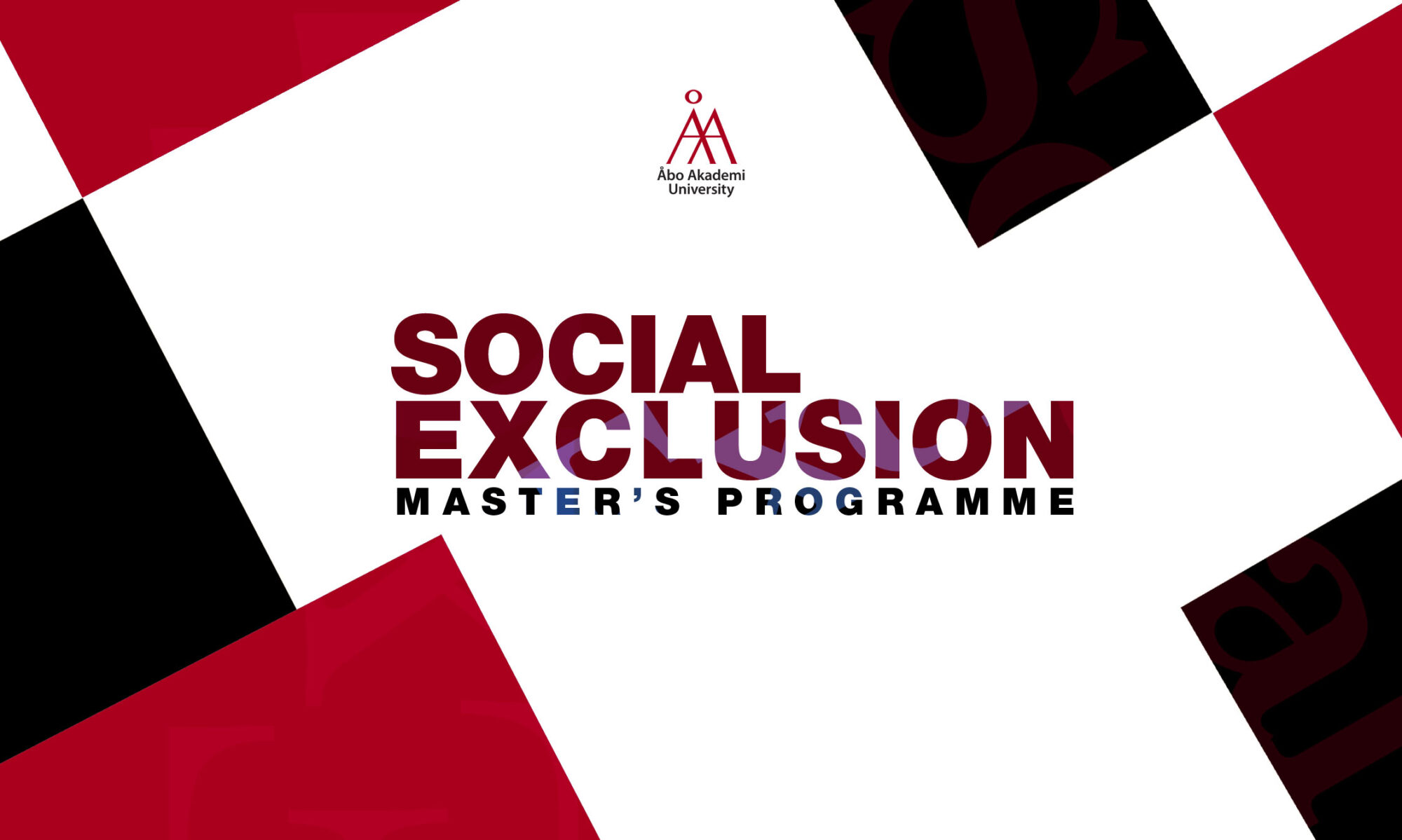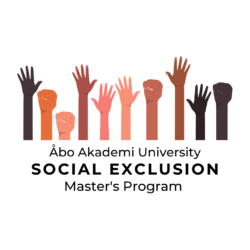Specialization: Philosophy
Othering, Identity, and Recognition: The Social Exclusion of the Constructed ‘Other’
“The ‘Other’ means different things to people in different situations and settings, and the way of defining the other changes from one person’s experience to the other. ‘Othering’ is not about one situation; it is about a pattern of behavior that brings down different minority groups or communities. This research studies the phenomena of constructing an identity for the ‘Other’. This identity is studied through a theoretical and phenomenological methods. The phenomena of ‘Othering’ creates the notion of becoming socially excluded. ‘Othering’ creates social barriers between a person or a group of people and the society. Exclusion happens through different methods such as; race, ethnicity, age, sexuality, religion, color, appearance, and so on. The research is conducted through interviewing eight international masters’ programs students in Turku, Finland. The analysis of the interviews is done through a framework of theories; the social act theory, social action, social performances to describe the motives and process of social actions. In addition, theories of identity and recognition to situate the understanding and knowledge of others. The data presented have a holistic view of looking to all these ideas together, through different stages and different unique experiences.”
Specialization: History
EDUCATIONAL POLICIES BY THE AKP GOVERNMENT AND THEIR IMPACT ON THE EDUCATION SYSTEM
“This study examines the historical background of manipulated education in Turkey, further analyzing the latest educational reforms by the AKP government (Justice and Development Party-Adalet ve Kalkınma Partisi), and understanding how these reforms lead to polarization.
Turkey is an ethnically mixed and diverse country related to its geographical location in the Middle East, Europe, and Central Asia, as well as being the heritage of the multinational Ottoman Empire. Most Turkish governments have preferred to use the “nation-building” strategy according to their preference and educational policies making it an essential part of nation-building. While Ataturk’s educational policies included the aims of Westernization and secularization, Erdogan’s educational policies aim for an Islamization of Turkey. In this way, Erdogan’s political ideas and political Islam contradict the ideas of Ataturk’s secularism, which creates disputes and misconceptions between Kemalists (Ataturk’s supporters) and conservative nationalists (Erdogan’s supporters).
In today’s Turkey, educational reforms by the AKP government are therefore increasing polarization because education is used as a basis for revenge by the Islamists vis-à-vis previous secular governments. The restructuring of education aimed to remove secularism from schools and to create a new identity against secular identity. As a result, the latest educational policies indicate Erdoganism, which has triggered polarization in Turkey. This thesis aims to determine how polarization started and developed in Turkey under Erdogan’s rule, and how the use of education as a political tool by AKP has caused polarization in Turkey.”
Specialization: Philosophy
Moominpappa and the Vibrant Matter : Tove Jansson’s “Moominpappa at Sea” as an addition to “Vibrant Matter” by Jane Bennet
“As humans we are constantly engaging not only with other humans but with plants, animals, and matter. This thesis examines the way we view our engagement with the materiality of the world around us, by looking at the work of philosopher Jane Bennet on vibrant materiality and author Tove Jansson. Bennet presents an argument that matter can be analysed as active and vibrant. While Western philosophers are used to viewing matter as passive and dead, seeing it as active makes space for different engagement with matter. One of the ways we can start engaging with matter, once we stop thinking of it as passive and dead, is through the lens of ethics. My aim in this thesis is to use Bennet’s and Jansson’s work as a way to consider matter as active and included in the ethical frameworks of the Western philosophical canon.
Jansson in her children’s book Moominpappa at Sea shows a possibility for looking at the material world through this ethical lens. This thesis will put these works in conversation by reading both as philosophical works that have nuanced engagement with the topic of how we can be in community with the things that surround us. This thesis argues that it is impossible to have interactions that are devoid of ethics. We are always already in community and therefore our actions always take place in an ethical register. This thesis concludes with an exploration of the ethical relations we already have with our material surroundings and a way to engage more actively with the ethical ecology of the things that surround us.”
Specialization: History
Inclusive Dreams and Excluded Realities : An Analysis and Critique of ‘Xenophobic’ Rhetoric, and Practices of Exclusion in the South African ‘Rainbow Nation’
“The South African ‘Rainbow Nation’ was an ideology born of the end of Apartheid in 1994 by Desmond Tutu and Nelson Mandela, and used to refer to the dreams and subsequent trajectory of national development of South Africa through the principles of inclusion for all and Ubuntu; and developed through the idea of an African Renaissance. However, as represented by three waves of anti-foreigner violence in 2008, 2015, and 2019, the inclusive dreams of the ‘Rainbow Nation’ seem a distant memory as practices of exclusion present themselves with frequency in the post-Apartheid state. The sentiment evident from analyses of the three waves of violence point to a fear and hostility towards foreigners in South Africa, and have thus been termed ‘xenophobia’ by scholars and media; and have been used consequently in all forms of discourse relating to the violence.
However, in further analyses of the causes of the violence, what becomes apparent is the complexity of causality that manifest within the three spheres of the social, economic, and political, that exist in the nation. These thus point to there being broader explanations for anti-foreigner violence than simply being a fear or hostility towards foreigners, borne out of rampant mentalities of exceptionalism by the general population and reinforced through immigration policy. Paying attention to the unique context and historical development of South Africa since 1994, this research will argue that the term “xenophobia” remains too simplistic in its encapsulation of the violence, and that rhetoric surrounding anti-foreigner movements and waves of violence must therefore be understood vis-à-vis the broader structure of the nation itself – along the three spheres of the social, economic, and political that shape sentiment and ultimately result in waves of violence via holistic causality.”

